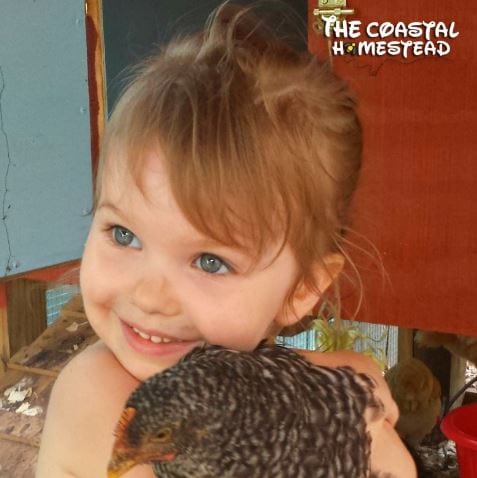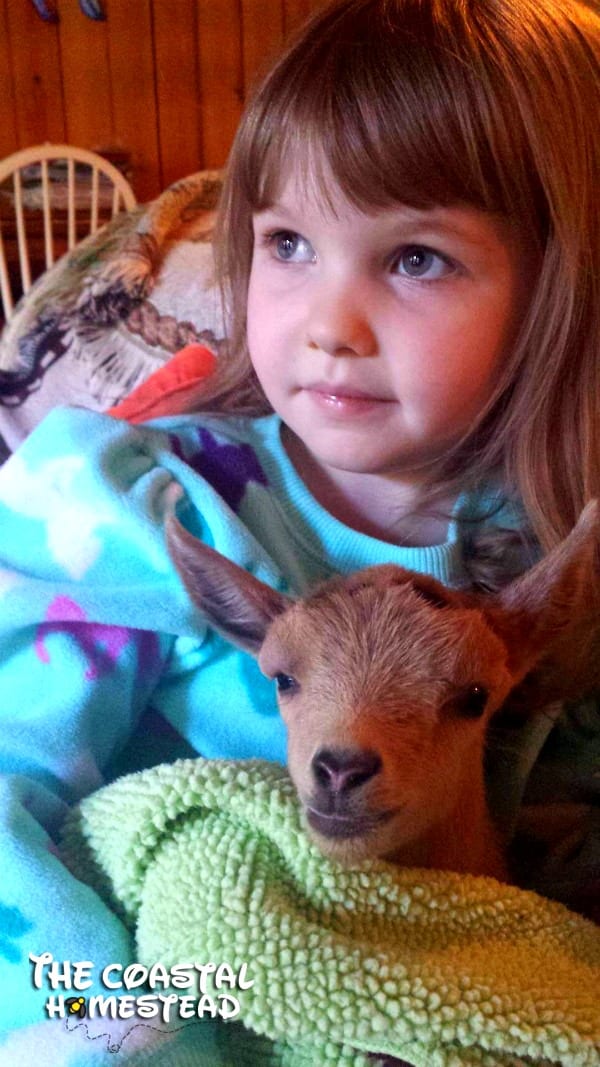 |
FTCLDF member Amber Bradshaw is fighting her county over an ordinance prohibiting her from having chickens on her property. FTCLDF is providing consultation to Amber on her situation.
It’s more than just chickens—it’s about feeding my family.
People across the country are fighting for the right to provide for their families with gardens and small backyard livestock. My family is one of those affected, and the new laws are taking the food off my children’s plates. This is our story.
Starting From Nothing
Almost two decades ago, I was a single mom. I worked full time, and I was homeless. Social Services said I made too much money to qualify for food stamps or government assistance.
Desperate to feed my family, I went to a church for a box of food. I looked inside and saw cookies, pastries, juice mix, moldy bread, and doughnuts. I knew I should be grateful, but just because I was poor did not mean my family didn’t deserve to eat healthy food. I vowed to never be in that situation again and to help others like me if I was ever allowed the opportunity to.
I continued to work hard (sometimes three jobs at a time), got my own house, started my own general contracting business, and was living the American Dream.
Then the recession hit, and no one wanted their house worked on. I was back in the same position where I couldn’t afford to feed my family and needed help. It is a humbling experience—you lose all pride and self-worth, and it feels like the system tries to punish you when you work to remove yourself from dependency.
Where We Are Now
We continue to live paycheck to paycheck, but our contracting business has bounced back. We live debt free and own a non-profit business that provides to those in need in our community with fresh produce. Between donations and sales, I am blessed to help provide food for over 150 of our friends and neighbors. We work hard to keep our expenses low and live a more sustainable life.
Our home food production includes:
- Chickens and Ducks
- Milking Goats
- Bees
- Gardening, Edible Landscaping and Mushrooms
We Also:
- Make all of our own household supplies and personal care items
- Do all of the construction on our house
- Share our skills with others through community outreach
We do all of this on ¼ acre in Pawleys Island, South Carolina.
When the Trouble Started
 Linden Bradshaw and Don Juan Linden Bradshaw and Don Juan |
When we began raising food, we checked with our homeowner association (HOA). I served on our HOA board for over seven years, and I was confident we weren’t breaking any rules. Just under a year ago, I was contacted by a local paper. They asked if they could run a story about our lifestyle. I was happy to open my doors for them, to share what we love. The paper misrepresented their interest in our story.
Two neighbors in our town had filed complaints against each other over backyard poultry. The city issued a citation to one of those two neighbors with a $500.00/day fine until the poultry was removed since poultry was “against the law”. The paper couldn’t release the name of the accused since there was a pending court case, so they put my name in the paper and used our story as an example.
The Georgetown County Council stood its ground that all poultry and livestock are illegal and therefore they have to be removed. The lawyer of the defendant discovered there wasn’t a law in our county that said livestock was illegal in residential areas. Between the lawyer and the County Council, they came up with a plan to pass a law “allowing” backyard chickens in 5 new zones out of the 26 zones in our county. What my friend and her attorney failed to realize is by supporting this decision, it would now go on record that owning livestock in all the other zones is illegal.
Fighting for the Right to Feed My Family
I went to every zoning meeting and pleaded with the county council to reconsider. I showed them the statistics. Out of the 61,000 residents in Georgetown County, more than 41% live below the federal poverty line—their neighbors, friends, and families. We need to be allowed to use our land to support our family. I explained how the government funding for SNAP and food benefits are running out. I pointed out we already have laws in place addressing their three primary concerns, specifically:
#1 – Would people operate a commercial chicken farm at their homes? No. We already have laws against operating a business in a residence.
#2 – Would backyard chickens produce too much noise at night? We already have noise nuisance laws in place. Chickens roost at dusk and never make a noise at night unless there is a predator.
#3 – Would backyard chickens produce sewage runoff problems? DHEC already has laws enforcing sewage runoff and contamination.
The county zoning law states that anything not specifically listed as “allowable” is automatically against the law.
Use of Land or Structures. 503.1 No land or structure shall hereafter be used or occupied unless it is specifically permitted as an allowable use within that zoning district and no structure or parts thereof shall hereafter be constructed, erected, altered or moved unless in conformity with all of the regulations herein specified for the district which it is located.
I pointed out that according to their reasoning and laws, my garden, dog house, bird feeder, playset, rain barrel, and everything else outside of my dwelling could be presumed against the law.
In spite of all my efforts and the efforts of other community members, the law went through. It was added to the zoning laws within 12 hours of the final meeting. For the first time in my life, I am knowingly breaking the law. Any day they may take away our ability to put food on our table. Every person should have the right to provide for their family, as long as we are not infringing on our neighbors’ rights to do the same.
This is wrong, and I will continue to fight.
YOUR FUND AT WORK
 Services provided by FTCLDF go beyond legal representation for members in court cases.
Services provided by FTCLDF go beyond legal representation for members in court cases.
Educational and policy work also provide an avenue for FTCLDF to build grassroots activism to create the most favorable regulatory climate possible. In addition to advising on bill language, FTCLDF supports favorable legislation via action alerts, social media outreach, and the online petition service.
You can help FTCLDF by becoming a member or donating today.

 Anyone wanting to make a contribution to support the work of FTCLDF can make a donation online or send a check to:
Anyone wanting to make a contribution to support the work of FTCLDF can make a donation online or send a check to:
FTCLDF
8116 Arlington Blvd, # 263
Falls Church, VA 22042
Prefer to make a tax-deductible donation? Donate online at bit.ly/NFG4FTC.
You may also contact us by email at [email protected] or call 703-208-FARM (3276). Thanks for your support.